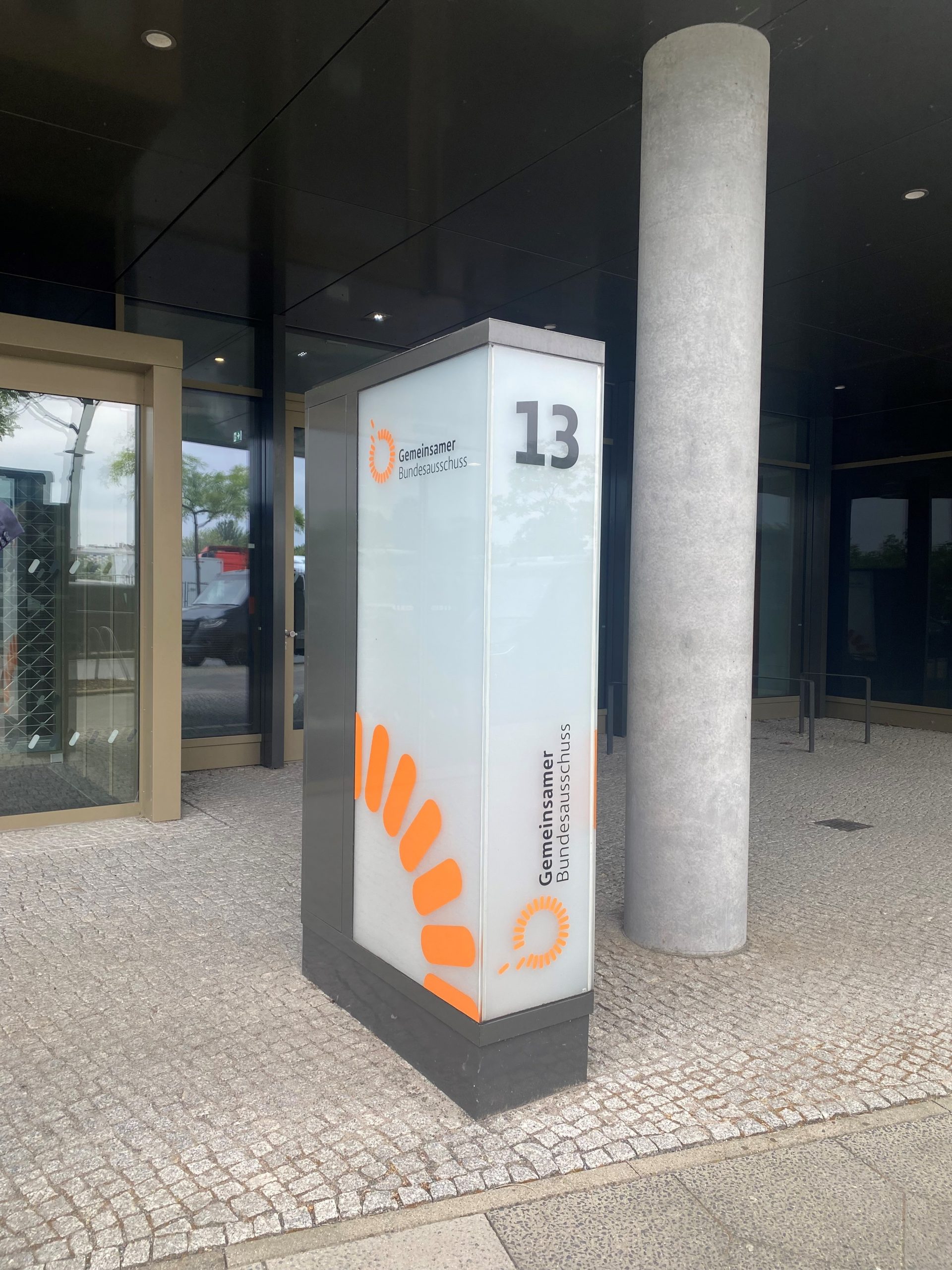
The G-BA Office in Berlin, Germany
After Boehringer Ingelheim’s announcement to withdraw a medicine for the treatment of a rare skin disease from the German market on 29 August 2023, a heated debate has erupted on the benefit assessment of new therapies in Germany. Boehringer Ingelheim said the health technology assessment (HTA) process could need more flexibility in the field of rare diseases. As a reaction to the company’s decision, Professor Josef Hecken, Chair of the G-BA, the decision-making HTA body, justified the result of the benefit assessment of spesolimab (Spevigo®) toward the German media (dpa).
This case gives rise to some thought about the benefit assessment of new medicines for rare diseases in Germany.
Incentives for designated orphan medicines
In 2000, the EU introduced incentives to stimulate the research, development and bringing to the market of designated orphan medicines. In 2011, AMNOG introduced a special incentive for the benefit assessment of orphan drugs in Germany. AMNOG guarantees orphan drugs a positive additional benefit, as long as their value of sales at GKV expense stays below a certain threshold. In fact, a maintenance of the orphan designation at the time of marketing authorisation is a pre-requisite to undergo a benefit assessment. An assessment based on the studies for marketing authorisation and not on a comparison over an appropriate comparator therapy established by the G-BA.
Generalised pustular psoriasis is not considered a distinct medical entity in the EU
In March 2012, the U.S. Food and Drug Administration (FDA) granted spesolimab an orphan drug designation for the treatment of generalised pustular psoriasis (GPP), a life-threatening skin disease. The FDA approved spesolimab for the treatment of GPP flares in adults in September 2022.
Shortly afterwards, the European Medicines Agency (EMA) recommended for spesolimab a marketing authorisation under conditional circumstances. This medicine addresses an unmet medical need, its benefits outweigh its risks and comprehensive clinical data can be expected. Spesolimab was approved in the European Union for the treatment of flares in adult patients with GPP as monotherapy in December 2022.
Contrary to the United States spesolimab has no orphan designation in the European Union. An application was submitted to the Committee for Orphan Medicinal Products (COMP) in the past. After a written and an oral explanation, the COMP did not consider GPP to be a distinct medical entity. The most appropriate term for the medicine’s use would be ‘treatment of psoriasis’. The criterion prevalence for the orphan designation could therefore not be met. Moreover, the data submitted could not demonstrate a significant benefit over therapies used in this condition. This application for orphan designation was withdrawn before the COMP’s final opinion in 2021.
Opt-out because of a negative benefit assessment decision
Boehringer Ingelheim discontinued the price negotiations on spesolimab with the National Association of Statutory Health insurance Funds (GKV-SV). These price negotiations in Germany are based on the G-BA benefit assessment resolutions. The resolution of 20 July 2023 states that an additional benefit of spesolimab is not proven in adults with GPP with an acute flare. Justifying its resolution, the G-BA says the study is not an adequate basis for proving an additional benefit.
This benefit assessment result can – according to the AMNOG pricing adjustments from November 2022 – only lead to a price lower than the price for an appropriate comparator. In this case for a therapy according to doctor’s instructions, taking into account systemic glucocorticoids and best supportive care.
A different benefit assessment decision on the basis of an orphan designation
What would an EU orphan designation have changed in the case of spesolimab? Probably not the clinical trial’s results.
However, the G-BA could not have – for legal reasons – decided that an additional benefit of spesolimab is not proven. Thus, the assessment would have resulted in an additional benefit being either ‘minor’, ‘considerable’, ‘major’, or – most probably – ‘non-quantifiable’. In addition, no appropriate comparator therapy would have been published in the G-BA resolution. Would this have changed Boehringer Ingelheim’s decision?
As a matter of fact, spesolimab is an interesting case to assess the role of medical plausibility for the designation of an orphan condition. This is of particular importance after the European Commission’s latest review of the Orphan Regulation.
